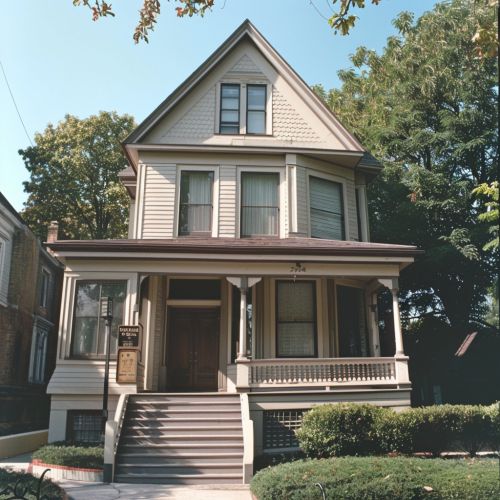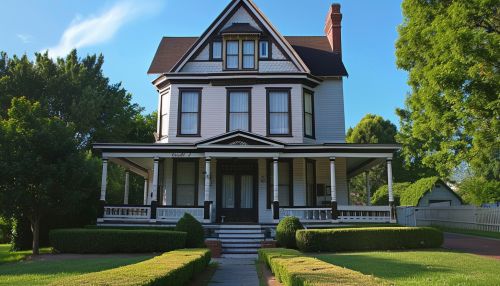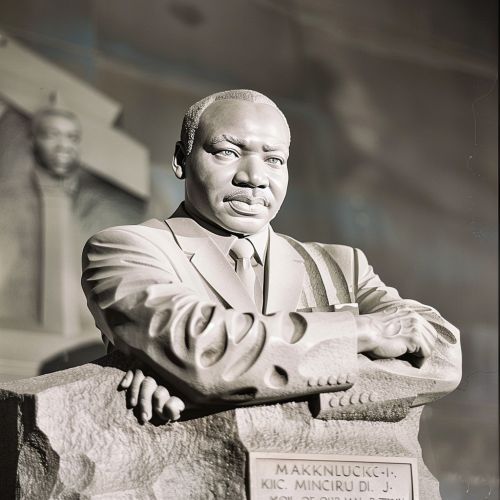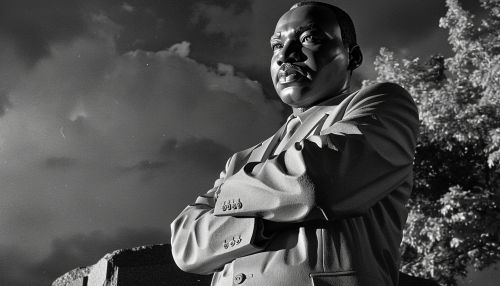Martin Luther King Jr.
Early Life
Martin Luther King Jr. was born on January 15, 1929, in Atlanta, Georgia. His parents were Martin Luther King Sr., a Baptist minister, and Alberta Williams King, a former schoolteacher. He was the middle child, with an older sister, Willie Christine King, and a younger brother, Alfred Daniel Williams King.
King attended segregated public schools in Georgia, graduating from high school at the age of 15. He then enrolled in Morehouse College, a historically black college in Atlanta, where he studied sociology. He graduated in 1948 and went on to attend Crozer Theological Seminary in Pennsylvania, where he earned a Bachelor of Divinity degree in 1951. King then moved to Boston to pursue a doctorate in systematic theology at Boston University.


Civil Rights Activism
In 1955, King became involved in the Civil Rights Movement when he led the Montgomery bus boycott, a protest campaign against racial segregation on the public transit system in Montgomery, Alabama. The boycott lasted for 381 days, and the situation became so tense that King's house was bombed. The boycott ended on December 20, 1956, when the United States Supreme Court ruled that segregation on public buses was unconstitutional.
In 1957, King, along with other civil rights activists, founded the Southern Christian Leadership Conference (SCLC), an organization aimed at abolishing legal segregation in the South using nonviolent protest. As the leader of the SCLC, King led many protests and demonstrations for civil rights, including the Birmingham campaign in 1963 and the Selma to Montgomery marches in 1965.
King is perhaps best known for his role in the 1963 March on Washington, where he delivered his famous "I Have a Dream" speech. In this speech, King shared his vision of a future in which his children would "not be judged by the color of their skin but by the content of their character."
Nonviolent Philosophy
King's philosophy of nonviolent resistance was heavily influenced by Mahatma Gandhi's philosophy of nonviolent protest. King believed that nonviolence was the most potent weapon available to oppressed people in their struggle for freedom. He argued that nonviolent protest was not a method for cowards; it does resist. The nonviolent resister is just as strongly opposed to the evil against which he protests as is the person who uses violence.
King's commitment to nonviolence was tested in campaigns such as in Birmingham, Alabama, in 1963, where protesters were met with police dogs and high-pressure fire hoses. Despite the violence, King and his followers remained committed to nonviolence, believing that enduring suffering can educate and transform.
Death and Legacy
On April 4, 1968, King was assassinated at the Lorraine Motel in Memphis, Tennessee. His death sparked riots in many U.S. cities, and President Lyndon B. Johnson declared a national day of mourning. King's legacy continues to be remembered and celebrated today, with Martin Luther King Jr. Day observed as a national holiday on the third Monday in January.
King's contributions to the Civil Rights Movement and his commitment to nonviolence have had a lasting impact on American society. His "I Have a Dream" speech is considered one of the greatest speeches in American history, and his philosophy of nonviolent resistance continues to influence social justice movements around the world.
See Also


